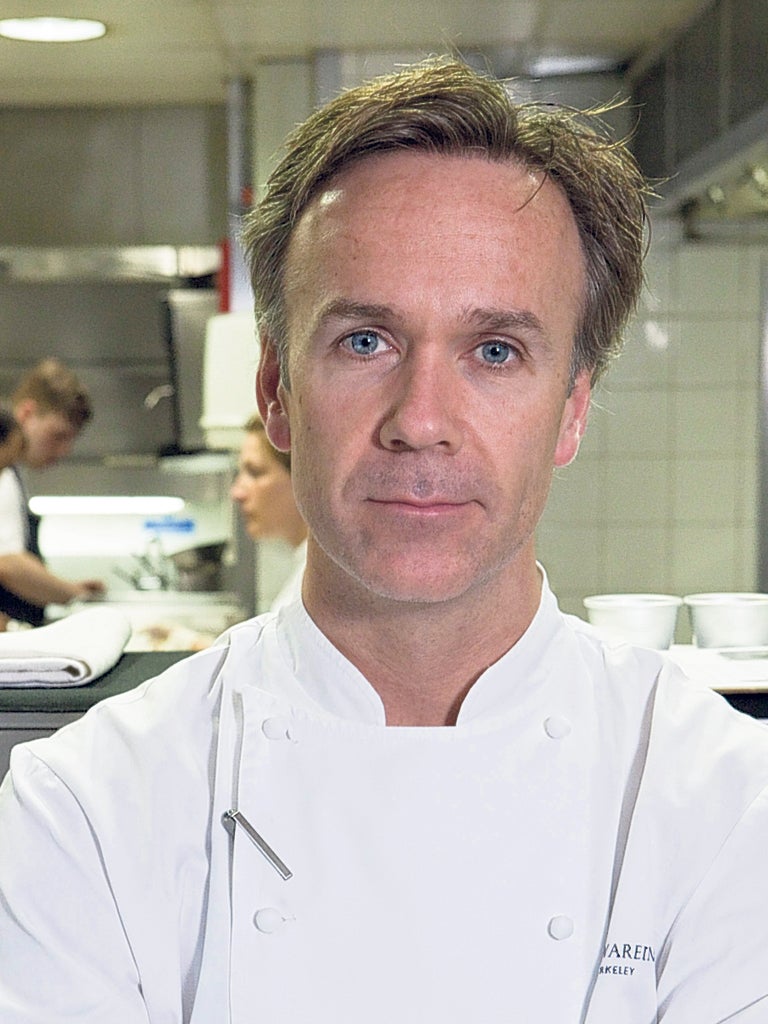
Marcus Wareing is the chef/patron of Marcus Wareing At The Berkeley. Having trained alongside Albert Roux, he went on to work as Gordon Ramsay's sous chef and then as his partner in L'Oranger in 1996. He opened the Gilbert Scott restaurant at the St Pancras Hotel in 2011.
What are your most and least used pieces of kitchen kit?
I think I would say my sous vide machine. I have had one for about four years now and use it a lot in the kitchens at the Berkeley. It's a very good way of cooking: it's slow and you can keep the temperature under control precisely. I use it for meat and fish, the whole lot. But it works best with fish, it prevents it overcooking and drying out. Poach a fish and it tightens in the boiling water, you see; this way, it doesn't. Least used piece of kitchen equipment lives at home. We never use the kettle. My wife Jane had a new kitchen put in and she had one of those boiling water taps. And I'm from the northwest, so we only ever use boiling water for tea.
If you had only £10 to spend on food, where would you spend it and on what?
If this was my very last tenner in the world, and my last meal ever, I'd go to the shop and buy as much Yorkshire tea and biscuits as I could and keep eating them until I died. I'd want chocolate biscuits. Hobnobs would do. Or Jaffa cakes, maybe.
What do you eat for comfort?
I don't really comfort eat. I find it a strange concept – to eat quantities of food to try and improve your mood. I eat for the pleasure of eating. Yes, I eat chocolate and sweet things but the real pleasure is in eating foods I'm not tasting throughout the day. Lasagne or Chinese food is good. Or one of my wife's creamy curries.
If you could eat only bread or potatoes for the rest of your life, which would you choose?
Bread, without doubt. I like a good French baguette or tomato or maybe onion bread – or even a bit of white sliced. Really, you could eat bread with every meal – you can't say the same about potatoes. My dad would kill me for saying this – he's a fruit and potato merchant.
What's your desert island recipe?
Well, seeing as I'm on a desert island, I'd work with what I've got. I'd catch a fish, gut it and cut it down the middle. I'd give it a good wash in the salty sea water for the taste. Then I'd massage olive oil into it – I'm assuming I've got oil in my supplies – and then sprinkle some Maldon Sea Salt on there, too. I'd cook it very slowly, you don't want to torture it or dry it.
What's your favourite cookbook?
I like the book from 11 Madison Park, the New York restaurant. It is a really attractive book, unfussy, feminine and clear. Its good to have these things around to use as inspiration.
What's your favourite restaurant?
I'd say the Gilbert Scott at the St Pancras Hotel. It's such a wonderful space. The history and architecture all work together and the food is great. I'm not there day in, day out, but I still take a close interest in what goes on there.
Who taught you to cook?
Gordon Ramsay. He taught me to question food and cooking and to question my own cooking, too. That was the most important time in my life. Gordon gave you a lot of attention because it was such a small kitchen. It was pressured but that was part of the learning process.
Subscribe to Independent Premium to bookmark this article
Want to bookmark your favourite articles and stories to read or reference later? Start your Independent Premium subscription today.

Join our commenting forum
Join thought-provoking conversations, follow other Independent readers and see their replies